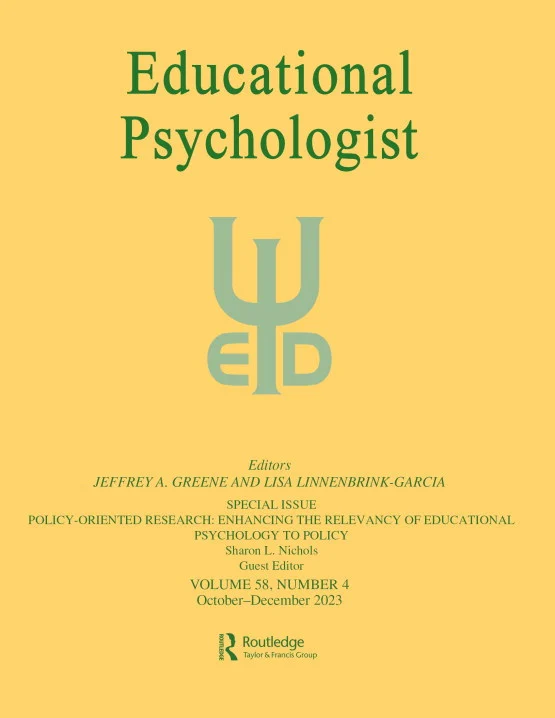Improving norms in research culture to incentivize transparency and rigor
IF 11.4
1区 心理学
Q1 EDUCATION & EDUCATIONAL RESEARCH
引用次数: 15
Abstract
Abstract Improving research culture to value transparency and rigor is necessary to engage in a productive “Credibility Revolution.” The field of educational psychology is well positioned to act toward this goal. It will take specific actions by both grassroots groups plus leadership to set standards that will ensure that getting published, funded, or hired is determined by universally supported ideals. These improved standards must ensure that transparency, rigor, and credibility are valued above novelty, impact, and incredibility. Grassroots groups advocate for change and share experience so that the next generation of researchers have the experience needed to sustain these early moves. Each community can take inspiration from others that have made shifts toward better practices. These instances provide opportunities for emulating trail-blazers, training for new practices such as preregistration, and constructively evaluating or criticizing practice in ways that advances the reputation of all involved.改善研究文化规范,鼓励透明度和严谨性
改善研究文化,重视透明度和严谨性,是开展富有成效的“可信度革命”的必要条件。教育心理学领域为实现这一目标做好了准备。它将由基层团体和领导层共同采取具体行动来制定标准,以确保出版、资助或雇用都是由普遍支持的理想决定的。这些改进后的标准必须确保透明度、严谨性和可信度高于新颖性、影响力和可信度。基层组织倡导变革并分享经验,以便下一代研究人员拥有维持这些早期行动所需的经验。每个社区都可以从其他已经转向更好实践的社区获得灵感。这些实例提供了模仿先行者的机会,为新实践(如预注册)提供培训,并以提高所有相关人员声誉的方式建设性地评估或批评实践。
本文章由计算机程序翻译,如有差异,请以英文原文为准。
求助全文
约1分钟内获得全文
求助全文
来源期刊

Educational Psychologist
Multiple-
CiteScore
19.10
自引率
3.40%
发文量
16
期刊介绍:
The Educational Psychologist is a scholarly journal dedicated to exploring the psychology of learning and instruction. Articles in this journal encompass a diverse range of perspectives, from examining psychological mechanisms to exploring social and societal phenomena related to learning and instruction. The journal publishes theoretical and conceptual articles, as well as reviews and meta-analyses, that significantly contribute to theory or advance the methods used to explore educational psychology. Emphasizing innovation and advancing understanding, the journal does not publish articles solely reporting the methods and results of empirical studies; instead, all submissions, including reviews and meta-analyses, must offer clear implications for advancing theory. In addition to regular articles, the journal features special issues that delve into important themes in educational psychology, along with focal articles accompanied by peer commentary.
 求助内容:
求助内容: 应助结果提醒方式:
应助结果提醒方式:


